The Government Office has just issued a press release on the direction and administration of the Government and the Prime Minister on February 27, 2025.
According to the new organizational structure, the Ministry of Industry and Trade has 22 units.
Decree regulating the functions, tasks, powers and organizational structure of the Ministry of Industry and Trade
The Government issued Decree No. 40/2025/ND-CP stipulating the functions, tasks, powers and organizational structure of the Ministry of Industry and Trade.
22 units under the Ministry of Industry and Trade
The Decree clearly states that 19 units assist the Minister of Industry and Trade in performing state management functions, including: 1- Department of Planning, Finance and Enterprise Management; 2- Department of Foreign Market Development; 3- Department of Multilateral Trade Policy; 4- Department of Oil, Gas and Coal; 5- Department of Personnel Organization; 6- Department of Legislation; 7- Ministry Inspectorate; 8- Ministry Office; 9- National Competition Commission; 10- Department of Domestic Market Management and Development; 11- Department of Electricity; 12- Department of Innovation, Green Transformation and Industrial Promotion; 13- Department of Industry; 14- Department of Trade Defense; 15- Department of Trade Promotion; 16- Department of Import and Export; 17- Department of Industrial Safety Techniques and Environment; 18- Department of E-Commerce and Digital Economy; 19- Department of Chemicals.
3 public service units serving the state management function of the Ministry of Industry and Trade include: 1- Institute for Strategy and Policy Research on Industry and Trade; 2- Industry and Trade Newspaper; 3- Industry and Trade Magazine.
Functions, tasks and powers of the Ministry of Industry and Trade
The Ministry of Industry and Trade is a Government agency performing the state management function of industry and trade, including the following sectors and fields: Electricity, coal, oil and gas, new energy, renewable energy, energy saving and efficiency, chemicals, industrial explosives, mechanical industry, metallurgy industry, mining and mineral processing industry, consumer industry, food industry, supporting industry, environmental industry, high-tech industry (excluding information technology industry and digital technology industry); industrial clusters, small-scale industry, industrial promotion; domestic trade; import-export, border trade; logistics services; foreign market development; market management; trade promotion; e-commerce; trade services; international economic integration; competition, consumer rights protection; trade defense; public services in sectors and fields under the state management of the Ministry.
About energy including: electricity, coal, oil and gas, new energy, renewable energy and other energies; electricity demand management, the Ministry of Industry and Trade manages the state according to its authority on investment in the construction of energy projects; synthesizes, analyzes, evaluates the situation and results of planning implementation, synthesizes reports on production and implementation of investment projects in the energy sector; organizes the announcement, evaluation, implementation of electricity development planning, approves adjustments to electricity development planning according to simplified procedures; approves plans, adjusts plans to implement electricity development planning according to the provisions of law on planning; decides on the list of electricity projects using official development assistance capital, preferential loans from foreign sponsors of enterprises in which the State holds 100% of charter capital or enterprises in which this enterprise holds 100% of charter capital as the investor according to the provisions of law on electricity; approves early exploitation plans at oil and gas fields; general plan for oil and gas field development; plan for oil and gas field cleanup; decision to reclaim oil and gas field in case the contractor fails to develop the field and exploit oil and gas within the approved time limit; decision to allow the burning of associated gas; decision to extend the oil and gas exploration period according to the provisions of the oil and gas contract; perform other tasks according to the provisions of the law on oil and gas; perform state management of oil and gas production, business and distribution activities (including: gasoline, natural gas, liquefied gas and other oil and gas products) according to the provisions of law.
In addition, perform state management of coal production and trading activities and coal supply for electricity production within the scope of state management of the ministry; manage the state and organize the implementation of the National Electricity Demand Management Program according to the provisions of law.
Regarding electricity regulation , the Ministry of Industry and Trade develops and submits to competent authorities for promulgation regulations on conditions, structure of the electricity sector, principles of operation and roadmap for development of competitive electricity market; mechanism for direct electricity purchase and sale between large electricity users and power generation units and organization of implementation; develops and promulgates regulations for operation and management of competitive electricity market transactions at all levels and organization of implementation; approves annual competitive electricity market operation plans; supervises the operation of competitive electricity market; directs the development of electricity supply plans, inspects and supervises the electricity supply situation and electricity system operation to ensure balance of electricity supply and demand; directs and decides on the operation and mobilization of power plants in urgent situations that seriously threaten the ability to ensure electricity supply; studies, proposes and manages solutions to balance electricity supply and demand, and manages electricity demand; guides on conditions and procedures for stopping and reducing electricity consumption; Conditions and procedures for connection to the national power grid, electricity metering; develop and submit to competent authorities for promulgation: Mechanism and time for adjusting average retail electricity price; price framework of average retail electricity price; structure of retail electricity price table submitted to the Government.
The Ministry of Industry and Trade approves the framework of electricity generation prices, wholesale electricity prices, electricity transmission service prices, electricity distribution service prices, electricity system auxiliary service prices, electricity system operation dispatch service prices and electricity market transaction management service prices; performs state management of the command and operation of the electricity generation, transmission, distribution and allocation system in the national electricity system, and operates electricity market transactions; performs state management of the issuance, amendment, supplementation, re-issuance, extension and revocation of electricity operation licenses; performs state management of electricity trading activities with foreign countries; guides and inspects the implementation of legal provisions and handles violations of the law in the electricity sector according to the provisions of law.
Regarding chemicals and industrial explosives , the Ministry of Industry and Trade shall perform state management of chemicals, precursors in the industrial sector, explosive precursors, industrial explosives; chemicals used in industrial consumer products according to the provisions of law; chemicals under the Convention on the Prohibition of the Development, Production, Stockpiling, Use and Destruction of Chemical Weapons and the implementation of other chemical conventions according to regulations; except for chemicals and explosive precursors in the military and defense sectors under the management authority of the Ministry of National Defense and in the security sector under the authority of the Ministry of Public Security; manage and develop the chemical and industrial explosives industry; develop and organize the implementation of strategies, plans and projects for the development of the chemical and industrial explosives industry; guide, inspect and summarize the development situation of the chemical and industrial explosives industry according to the provisions of law; Manage research, development and testing activities of industrial explosives carried out by scientific and technological organizations or industrial explosives manufacturing enterprises.
Regarding heavy industry and light industry , the Ministry of Industry and Trade manages and develops the mechanical industry, metallurgy industry, mineral mining, processing and consumption industry (except minerals used as construction materials and cement production), consumer industry, food industry, biological industry, supporting industry, electronics industry (except information technology industry and digital technology industry) and high-tech industry (excluding information technology industry and digital technology industry) according to the provisions of law; presides over and coordinates with relevant ministries and branches to develop and submit to competent authorities for promulgation of mechanisms, policies and lists of priority products for development in industries under the state management of the Ministry.
Regarding industrial promotion, industrial clusters, and small-scale industries , the Ministry of Industry and Trade develops and implements industrial promotion programs and plans, manages national industrial promotion funds; organizes the development of small-scale industries, industrial craft villages, and small-scale industries; organizes the development of industrial clusters, coordinates investment promotion in industrial clusters; develops programs to support investment in industrial cluster infrastructure according to the provisions of law; organizes the implementation of tasks to support the development of small and medium-sized enterprises in the industrial and small-scale industries.
Regarding domestic trade and market , the Ministry of Industry and Trade organizes the implementation of mechanisms and policies on trade and domestic market development; develops trade and ensures the balance of supply and demand of goods, essential goods for mountainous areas, islands, remote areas, border areas and ethnic minorities according to the provisions of law; on transaction methods and business types according to the provisions of law; presides over and coordinates with ministries and branches to regulate the distribution and circulation of goods; presides over and coordinates with ministries, branches and localities to manage and develop trade services according to the provisions of law; presides over and coordinates with ministries, branches and localities to develop policies on developing trade infrastructure (including markets, supermarkets, trade centers, shopping centers, commodity auction centers, logistics centers, goods warehouses, fair and exhibition centers, retail stores) according to the provisions of law; performs state management of goods trading activities through the Commodity Exchange.
Regarding the export and import of goods , the Ministry of Industry and Trade organizes the implementation of mechanisms and policies on the export and import of goods, border trade and the development of foreign markets; manages the export, import, temporary import, re-export, temporary export, re-import, border transfer, transit of goods, border trade, entrusted activities, entrusted export, entrusted import, purchasing and selling agents, processing, origin of goods; synthesizes the situation and plans for the export and import of goods and border trade according to the provisions of law.
Regarding trade defense , the Ministry of Industry and Trade organizes the implementation of legal provisions on trade defense, including: Anti-dumping, anti-subsidy and self-defense for goods imported from foreign countries into Vietnam; anti-evasion of trade defense measures; trade defense investigation; presides over and coordinates with ministries, branches and localities in assisting industry associations and enterprises when being investigated and applying trade defense measures (including anti-dumping, anti-subsidy, self-defense and anti-evasion of trade defense measures) by foreign countries to Vietnam's export goods; performs tasks related to resolving disputes on trade defense lawsuits at the WTO and international organizations.
The Ministry of Industry and Trade performs state management of e-commerce.
Regarding e-commerce and digital economy , the Ministry of Industry and Trade performs state management of e-commerce. Presides over, coordinates, and organizes the implementation of strategies, plans, and programs for e-commerce development, policies, and laws regulating e-commerce activities; organizes the implementation of incentive, support, and orientation mechanisms for the development of new business models on the e-commerce application platform and digital technology applications in the industry and trade sector; guides and inspects the content and conditions of e-commerce activities; manages and supervises e-commerce activities and business models based on digital technology applications in accordance with the law.
The Ministry of Industry and Trade establishes and operates essential infrastructure for e-commerce; builds a common architectural framework and technical platform for business models based on digital technology applications in the industry and trade sector; builds and develops e-commerce infrastructure and digital technology applications in the industry and trade sector, supports businesses to link through value chains, develops markets to promote export activities;.
The Ministry of Industry and Trade performs state management of digital transformation in the sectors and fields under the state management of the Ministry, develops the digital economy of the industry and trade sector; builds, manages and operates the Energy Information System of the industry and trade sector to carry out data management activities, share management, data exploitation, organize investigation, collect, synthesize and update energy information data.
Regarding market management , the Ministry of Industry and Trade guides and inspects the implementation of legal provisions on trading in goods and commercial services in the assigned fields; handles violations of the law in trading in goods and commercial services in the domestic market and other fields according to the provisions of law; presides over and coordinates with ministries, branches and localities in the work of preventing and combating the production and trade of counterfeit goods, banned goods, smuggled goods, trade fraud and other violations of the law in trading in goods and commercial services according to the provisions of law; directs, guides, supervises and inspects the inspection and handling of violations of the law and implements professional measures of the Market Management force according to the provisions of law. Coordinates with the People's Committees of provinces and centrally run cities to perform the task of state management of the Market Management force according to the provisions of law.
Regarding competition and consumer rights protection, management of multi-level marketing business activities , the Ministry of Industry and Trade organizes the implementation of state management of competition; conducts competition proceedings, controls economic concentration, decides on exemptions for prohibited competition restriction agreements, resolves complaints about decisions on handling competition cases according to law provisions; organizes the implementation of state management of consumer rights protection according to law provisions; organizes the implementation of state management of multi-level marketing business activities according to law provisions.
Regarding trade promotion , the Ministry of Industry and Trade presides over and coordinates with ministries, ministerial-level agencies, relevant agencies, and local authorities to develop and implement the National Trade Promotion Program and the National Brand Program in accordance with the law; develop and organize trade promotion activities in accordance with the law; guide and inspect the content and conditions of commercial advertising, branding, fairs, trade exhibitions, promotions, display, and introduction of goods and services domestically and internationally in accordance with the law; manage and monitor state budget sources for annual trade promotion activities in accordance with the law;
In addition, manage and direct the activities of Vietnamese trade promotion offices abroad; manage representative offices of foreign trade promotion organizations in Vietnam according to the provisions of law; establish, operate and develop trade promotion infrastructure systems, digital infrastructure serving trade promotion...
The Decree takes effect from March 1, 2025.
Decree stipulating the functions, tasks, powers and organizational structure of the Ministry of Ethnic Minorities and Religions
The Government has just issued Decree No. 41/2025/ND-CP stipulating the functions, tasks, powers and organizational structure of the Ministry of Ethnic Minorities and Religions.
According to the Decree, the Ministry of Ethnic Minorities and Religions is a Government agency performing the state management function in the following sectors and fields: Ethnic affairs; beliefs and religions and state management of public services in the sectors and fields of state management of the Ministry according to the provisions of law.
Duties and powers
Decree 41/2025/ND-CP clearly states that the Ministry of Ethnic Minorities and Religions performs the tasks and powers prescribed in the Law on Organization of the Government, the Government's regulations on functions, tasks, powers and organizational structure of ministries and ministerial-level agencies and performs the following specific tasks and powers:
Submit to the Government draft laws, draft resolutions of the National Assembly, draft ordinances, draft resolutions of the National Assembly Standing Committee, draft decrees of the Government according to the Government's annual law-making program and plan, and resolutions, projects, and proposals as assigned by the Government and the Prime Minister.
Submit to the Government and the Prime Minister for submission to the National Assembly for promulgation of ethnic policies, belief and religious policies within the scope of state management of the Ministry.
Submit to the Government and the Prime Minister strategies, planning, long-term, medium-term and annual development plans and important national projects and works in the field of state management of the Ministry.
Submit to the Prime Minister draft decisions, directives, national target programs and other documents within the scope of state management of the ministry or as assigned by the Government or Prime Minister.
Issue circulars, decisions, directives and other documents within the scope of state management of the ministry.
Regarding ethnic affairs , the Ministry of Ethnic Minorities and Religions submits to the Government and the Prime Minister for promulgation specific policies, programs, projects, and plans for socio-economic development in communes, villages, and hamlets with difficult socio-economic conditions, especially difficult conditions in ethnic minority and mountainous areas, border communes, and safe zone communes; investment policies and support for stabilizing the lives of ethnic minorities; policies and projects to support people in extremely difficult areas; policies and projects for conservation and development of ethnic minority groups with very few people, ethnic minorities that still face many difficulties, and ethnic minorities with special difficulties.
Submit to the Government and the Prime Minister policies for prestigious people among ethnic minorities; submit to competent authorities for promulgation policies on human resource development, attracting and increasing cadres, civil servants and public employees working in ethnic minority and mountainous areas; policies on improving people's knowledge, training, fostering and using cadres who are ethnic minorities, specific policies for cadres and civil servants in the system of agencies working on ethnic affairs; policies for ethnic minorities to exercise their right to use their language and writing, preserve their ethnic identity, customs, traditions and culture; policies on investment and development of educational and training facilities to meet the educational and training needs of ethnic minority and mountainous areas.
Submit to competent authorities for promulgation or promulgate under their authority criteria for delimiting ethnic minority and mountainous areas according to development levels, lists for delimiting communes and villages in ethnic minority and mountainous areas according to development levels; criteria for identifying ethnic minorities that still face many difficulties or have specific difficulties.
At the same time, coordinate with relevant ministries and agencies in planning the allocation of investment resources for socio-economic development and other resources for localities in ethnic minority and mountainous areas; propose and participate in the appraisal of programs, projects, plans and policies related to ethnic minority and mountainous areas according to the provisions of law; perform management tasks for specialized schools and other educational institutions when assigned by competent authorities according to the provisions of law.
About beliefs and religions, The Ministry of Ethnic Minorities and Religions is responsible for assisting the Government in unifying the State management of beliefs and religions in accordance with the law; organizing the implementation of the Party's guidelines, the State's legal policies, strategies, plans, programs, projects on beliefs and religions or related to beliefs and religions after they have been issued or approved by competent authorities; acting as a contact point with domestic and international religious organizations, religious diplomacy and human rights struggle in the field of religion; promoting the strengthening of great solidarity within religious communities in Vietnam; guiding religious communities, organizations and individuals to operate in accordance with the law.
To preside over and coordinate with ministries, branches, localities, central agencies of socio-political organizations and relevant organizations to inform, propagate and mobilize the masses to implement the Party's guidelines and the State's laws and policies on beliefs and religions.
Unified management of publishing publications, scriptures, works, teaching materials, and purely religious cultural products of religious communities and religious organizations licensed to operate by the State.
The Ministry of Ethnic Minorities and Religions directs and guides the development of advanced models, exemplary collectives, individuals, and prestigious people among ethnic minorities; rewards according to its authority or proposes to competent authorities to reward exemplary collectives and individuals with outstanding achievements in labor, production, construction, socio-economic development, maintaining security and order, and exemplary implementation of the Party's policies and the State's laws in ethnic minority and mountainous areas; rewards according to its authority or proposes to competent authorities to reward and apply regimes and policies to organizations and individuals participating in belief and religious activities.
Direct, guide and be responsible for organizing the implementation of legal documents, strategies, planning, plans, policies, programs, projects, national target programs, important national works, decisions and directives that have been issued or approved within the scope of state management of the Ministry. Examine legal documents issued by ministries, People's Councils, People's Committees of provinces and centrally run cities related to the field of ethnic, belief and religious affairs; participate in the development of legal documents related to ethnic, belief and religious policies according to the provisions of law.
International cooperation in areas under the Ministry's state management as prescribed by law; attracting resources to support investment in the development of ethnic minority and mountainous areas, areas with difficult and especially difficult socio-economic conditions as prescribed by law; managing, directing or participating in the implementation of programs and projects sponsored by foreign countries and international organizations, and investing in ethnic minority and mountainous areas as prescribed by law.
Inspect and examine the implementation of policies and laws; resolve complaints, denunciations and recommendations of citizens; prevent and combat corruption, negativity, waste and handle violations of the law in areas under the state management of the Ministry according to the provisions of law.
Manage the organization, civil servant payroll, number of civil servants, job positions, civil servant rank structure, civil servant structure by professional title; decide on appointment, reappointment, transfer, rotation, secondment, resignation, dismissal, removal from office, rewards, discipline, termination of employment, retirement, salary regime and policies on treatment, training and development of cadres, civil servants, public employees and workers of the ministry according to regulations...
Organizational structure
The Decree stipulates the organizational structure of the Ministry of Ethnic Minorities and Religions, including: 1- Department of Planning and Finance; 2- Department of Personnel Organization; 3- Department of Legislation; 4- Department of International Cooperation; 5- Inspectorate; 6- Office; 7- Government Committee for Religious Affairs; 8- Department of Propaganda for Ethnic Minorities and Religions; 9- Department of Policy; 10- Center for Digital Transformation; 11- Academy of Ethnic Minorities; 12- Ethnic Minorities and Development Newspaper; 13- Journal of Ethnic Minorities and Religions Studies.
Units 1 to 9 are units assisting the Minister of Ethnic Minorities and Religions in performing state management functions; units 10 to 13 are public service units serving the state management functions of the Ministry of Ethnic Minorities and Religions.
The Government Committee for Religious Affairs is a department-level organization with an organizational structure consisting of 7 department-level units; the Ministry Office and the Ministry Inspectorate have department-level units according to regulations.
The Department of Propaganda for Ethnic and Religious Affairs has two divisions headquartered in Dak Lak province and Can Tho city.
The Minister of Ethnic Minorities and Religions shall submit to the Prime Minister for promulgation a list of other public service units under the ministry as prescribed.
This Decree takes effect from March 1, 2025; replaces Decree No. 66/2022/ND-CP dated September 20, 2022 of the Government stipulating the functions, tasks, powers and organizational structure of the Ethnic Committee; abolishes Clause 14, Article 2 of Decree No. 63/2022/ND-CP dated September 12, 2022 of the Government stipulating the functions, tasks, powers and organizational structure of the Ministry of Home Affairs.
Prime Minister Pham Minh Chinh has just signed Decision No. 444/QD-TTg dated February 27, 2025, assigning targets for completing social housing in 2025 and the following years until 2030 for localities to add to their socio-economic development targets.
On April 3, 2023, the Prime Minister issued Decision 338/QD-TTg approving the Project "Investing in the construction of at least 1 million social housing apartments for low-income earners and industrial park workers in the 2021-2030 period".
The project aims to develop social housing and worker housing at prices suitable to the affordability of middle- and low-income households in urban areas and of workers and laborers in industrial parks and export processing zones.
The State encourages economic sectors to develop housing to create conditions for everyone to have accommodation according to market mechanisms, meeting all people's needs, and at the same time has policies to support housing for social policy beneficiaries, low-income people and the poor who have housing difficulties in order to contribute to political stability, ensure social security and develop urban and rural areas in a civilized and modern direction.
The project strives to have about 1,062,200 apartments completed by localities by 2030.
In Decision No. 444/QD-TTg dated February 27, 2025, the Prime Minister assigned the target of the number of apartments that localities must complete in the 2025 - 2030 period to be 995,445 apartments; of which 100,275 apartments in 2025, 116,347 apartments in 2026, 148,343 apartments in 2027, 172,402 apartments in 2028; 186,917 apartments in 2029 and 271,161 apartments in 2030.
Specific targets for each locality are as follows:
TARGETS FOR COMPLETION OF SOCIAL HOUSING IN 2025 AND THE FOLLOWING YEARS UNTIL 2030 FOR LOCALITIES TO ADD TO SOCIO-ECONOMIC DEVELOPMENT TARGETS | ||||||||||
(Attached to Decision No. 444/QD-TTg dated February 27, 2025 of the Prime Minister) | ||||||||||
STT | Local | Targets assigned in the Project by 2030 | Number of completed apartments in phase 2021 - 2024 (apartments) | Target to be completed in the period 2025 - 2030 | Target for completion of phase 2025 - 2030 | |||||
2025 | 2026 | 2027 | 2028 | Year 2029 | 2030 | |||||
Apartment | Apartment | Apartment | Apartment | Apartment | Apartment | Apartment | ||||
(1) | (2) | (3) | (4) | (5) | (6) | (7) | (8) | (9) | (10) | (11) |
Local | 1,062,200 | 66,755 | 995,445 | 100,275 | 116,347 | 148,343 | 172,402 | 186,917 | 271,161 | |
1 | Hanoi | 56,200 | 11,334 | 44,866 | 4,670 | 5,420 | 6,400 | 6,790 | 7,370 | 14,216 |
2 | Ho Chi Minh | 69,700 | 2,745 | 66,955 | 2,874 | 6,410 | 9,610 | 12,820 | 16,020 | 19,221 |
3 | Hai Phong | 33,500 | 5,242 | 28,258 | 10,158 | 3,000 | 3,000 | 3,000 | 3,000 | 6,100 |
4 | Da Nang | 12,800 | 3,445 | 9,355 | 1,500 | 1,600 | 1,500 | 1,500 | 1,600 | 1,655 |
5 | Can Tho | 9,100 | 2,252 | 6,848 | 1,139 | 1,101 | 1,194 | 1,177 | 1,108 | 1,129 |
6 | Thua Thien Hue | 7,700 | 200 | 7,500 | 1,200 | 1,134 | 1,197 | 1,260 | 1,323 | 1,386 |
7 | Ha Giang | 1,500 | 0 | 1,500 | 0 | 0 | 350 | 360 | 390 | 400 |
8 | Cao Bang | 1,500 | 0 | 1,500 | 0 | 270 | 285 | 300 | 315 | 330 |
9 | Lao Cai | 7,600 | 0 | 7,600 | 1,980 | 479 | 889 | 1,317 | 1,606 | 1,329 |
10 | Bac Kan | 600 | 0 | 600 | 0 | 0 | 50 | 160 | 184 | 206 |
11 | Lang Son | 3,000 | 424 | 2,576 | 796 | 320 | 338 | 356 | 475 | 291 |
12 | Tuyen Quang | 1,500 | 0 | 1,500 | 146 | 244 | 257 | 271 | 284 | 298 |
13 | Yen Bai | 700 | 0 | 700 | 248 | 80 | 85 | 90 | 95 | 102 |
14 | Son La | 4,000 | 0 | 4,000 | 100 | 150 | 200 | 200 | 200 | 3,150 |
15 | Phu Tho | 22,200 | 335 | 21,865 | 1,390 | 3,710 | 3,915 | 4,122 | 4,328 | 4,400 |
16 | Hung Yen | 42,500 | 1,002 | 41,498 | 1,750 | 1,356 | 9,800 | 10,925 | 10,190 | 7,477 |
17 | Bac Giang | 74,900 | 5,078 | 69,822 | 5,243 | 12,139 | 12,814 | 13,488 | 13,916 | 12,222 |
18 | Thai Nguyen | 24,200 | 0 | 24,200 | 1,084 | 4,161 | 4,392 | 4,623 | 4,854 | 5,086 |
19 | Ninh Binh | 3,100 | 0 | 3,100 | 100 | 110 | 821 | 820 | 663 | 586 |
20 | Peace | 13,900 | 741 | 13,159 | 435 | 2,291 | 2,419 | 2,546 | 2,673 | 2,795 |
21 | Nam Dinh | 9,800 | 0 | 9,800 | 1,000 | 324 | 1,000 | 1,504 | 1,800 | 4,172 |
22 | Peace | 6,000 | 498 | 5,502 | 500 | 954 | 1,009 | 1,060 | 1,113 | 866 |
23 | Hai Duong | 15,900 | 619 | 15,281 | 536 | 690 | 2,874 | 3,530 | 3,850 | 3,801 |
24 | Ha Nam | 12,400 | 964 | 11,436 | 3,361 | 1,500 | 1,600 | 1,700 | 1,700 | 1,575 |
25 | Vinh Phuc | 28,300 | 471 | 27,829 | 505 | 922 | 1,598 | 2,397 | 3,196 | 19,211 |
26 | Bac Ninh | 72,200 | 7,020 | 65,180 | 10,686 | 6,000 | 6,000 | 13,000 | 14,500 | 14,994 |
27 | Quang Ninh | 18,000 | 412 | 17,588 | 2,201 | 2,770 | 2,924 | 3,077 | 3,231 | 3,385 |
28 | Dien Bien | 1,500 | 0 | 1,500 | 0 | 270 | 285 | 300 | 315 | 330 |
29 | Lai Chau | 1,500 | 0 | 1,500 | 0 | 0 | 0 | 600 | 0 | 900 |
30 | Thanh Hoa | 13,700 | 2,197 | 11,503 | 5,249 | 880 | 966 | 1,051 | 1,136 | 2,221 |
31 | Nghe An | 28,500 | 1,675 | 26,825 | 1,420 | 2,030 | 4,711 | 4,959 | 5,685 | 8,020 |
32 | Ha Tinh | 3,700 | 152 | 3,548 | 200 | 488 | 750 | 750 | 960 | 400 |
33 | Quang Binh | 15,000 | 0 | 15,000 | 300 | 400 | 900 | 900 | 900 | 11,600 |
34 | Quang Tri | 9,100 | 0 | 9,100 | 142 | 1,612 | 1,702 | 1,792 | 1,881 | 1,971 |
35 | Quang Nam | 19,600 | 0 | 19,600 | 1,176 | 3,316 | 3,501 | 3,685 | 3,869 | 4,053 |
36 | Quang Ngai | 6,300 | 0 | 6,300 | 0 | 0 | 0 | 800 | 2,000 | 3,500 |
37 | Khanh Hoa | 7,800 | 3,364 | 4,436 | 2,496 | 381 | 381 | 381 | 381 | 417 |
38 | Phu Yen | 19,600 | 393 | 19,207 | 1,000 | 500 | 1,300 | 2,000 | 3,000 | 11,407 |
39 | Kon Tum | 2,200 | 144 | 2,056 | 240 | 140 | 200 | 363 | 500 | 613 |
40 | Dak Lak | 18,800 | 0 | 18,800 | 1,255 | 3,158 | 3,334 | 3,509 | 3,684 | 3,860 |
41 | Dak Nong | 3,000 | 0 | 3,000 | 108 | 0 | 100 | 200 | 500 | 2,092 |
42 | Gia Lai | 3,700 | 0 | 3,700 | 0 | 503 | 840 | 1,000 | 650 | 707 |
43 | Lam Dong | 2,200 | 99 | 2,101 | 402 | 94 | 210 | 543 | 531 | 321 |
44 | Pacify | 12,900 | 4,427 | 8,473 | 4,132 | 738 | 700 | 913 | 909 | 1,081 |
45 | Binh Phuoc | 44,200 | 350 | 43,850 | 1,600 | 5,033 | 6,761 | 7,416 | 8,977 | 14,063 |
46 | Ba Ria - Vung Tau | 12,500 | 313 | 12,187 | 1,919 | 1,340 | 2,365 | 2,316 | 2,312 | 1,935 |
47 | Dong Nai | 22,500 | 1,660 | 20,840 | 2,608 | 3,000 | 3,000 | 3,000 | 4,000 | 5,232 |
48 | Binh Thuan | 9,800 | 399 | 9,401 | 4,355 | 841 | 925 | 1,009 | 1,093 | 1,178 |
49 | Ninh Thuan | 6,500 | 848 | 5,652 | 350 | 722 | 1,084 | 1,263 | 1,359 | 874 |
50 | Tay Ninh | 11,900 | 2,400 | 9,500 | 1,743 | 721 | 1,898 | 2,192 | 2,092 | 854 |
51 | Binh Duong | 86,900 | 2,045 | 84,855 | 8,247 | 14,509 | 15,316 | 16,122 | 16,928 | 13,733 |
52 | Dong Thap | 6,100 | 0 | 6,100 | 665 | 483 | 508 | 791 | 983 | 2,670 |
53 | Long An | 71,200 | 460 | 70,740 | 2,000 | 12,594 | 13,293 | 13,993 | 14,693 | 14,167 |
54 | Tien Giang | 7,800 | 203 | 7,597 | 809 | 1,122 | 1,352 | 2,000 | 1,109 | 1,206 |
55 | An Giang | 6,300 | 1,809 | 4,491 | 535 | 760 | 760 | 760 | 760 | 916 |
56 | Hau Giang | 1,400 | 0 | 1,400 | 198 | 280 | 202 | 247 | 172 | 301 |
57 | Vinh Long | 5,900 | 0 | 5,900 | 736 | 930 | 981 | 1,033 | 1,084 | 1,136 |
58 | Soc Trang | 6,400 | 0 | 6,400 | 60 | 516 | 748 | 1,150 | 1,745 | 2,181 |
59 | Kien Giang | 3,500 | 990 | 2,510 | 450 | 161 | 756 | 698 | 252 | 193 |
60 | Ben Tre | 4,700 | 0 | 4,700 | 240 | 700 | 820 | 820 | 820 | 1,300 |
61 | Bac Lieu | 1,900 | 0 | 1,900 | 338 | 150 | 253 | 253 | 253 | 653 |
62 | Ca Mau | 2,900 | 45 | 2,855 | 263 | 340 | 520 | 600 | 600 | 532 |
63 | Tra Vinh | 27,900 | 0 | 27,900 | 1,439 | 500 | 400 | 600 | 800 | 24,161 |
Source: https://baolangson.vn/chi-dao-dieu-hanh-cua-chinh-phu-thu-tuong-chinh-phu-ngay-27-02-2025-5039406.html


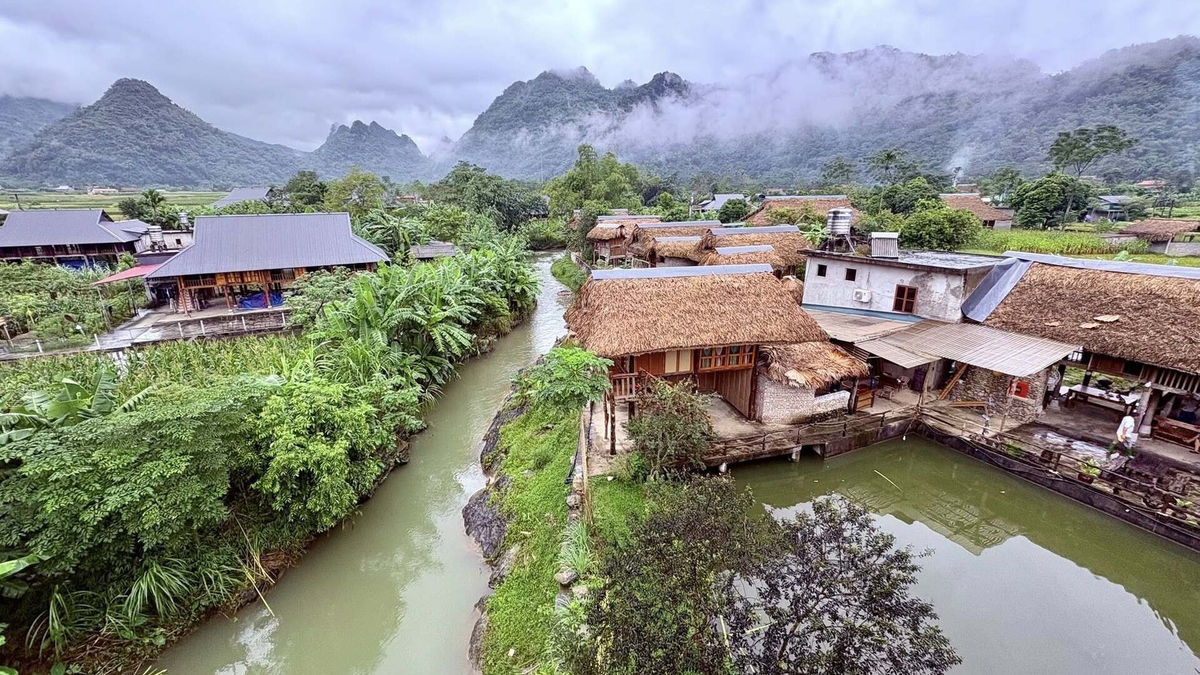
![[Photo] Ready for the 2025 Fall Fair](https://vphoto.vietnam.vn/thumb/1200x675/vietnam/resource/IMAGE/2025/10/14/1760456672454_ndo_br_chi-9796-jpg.webp)
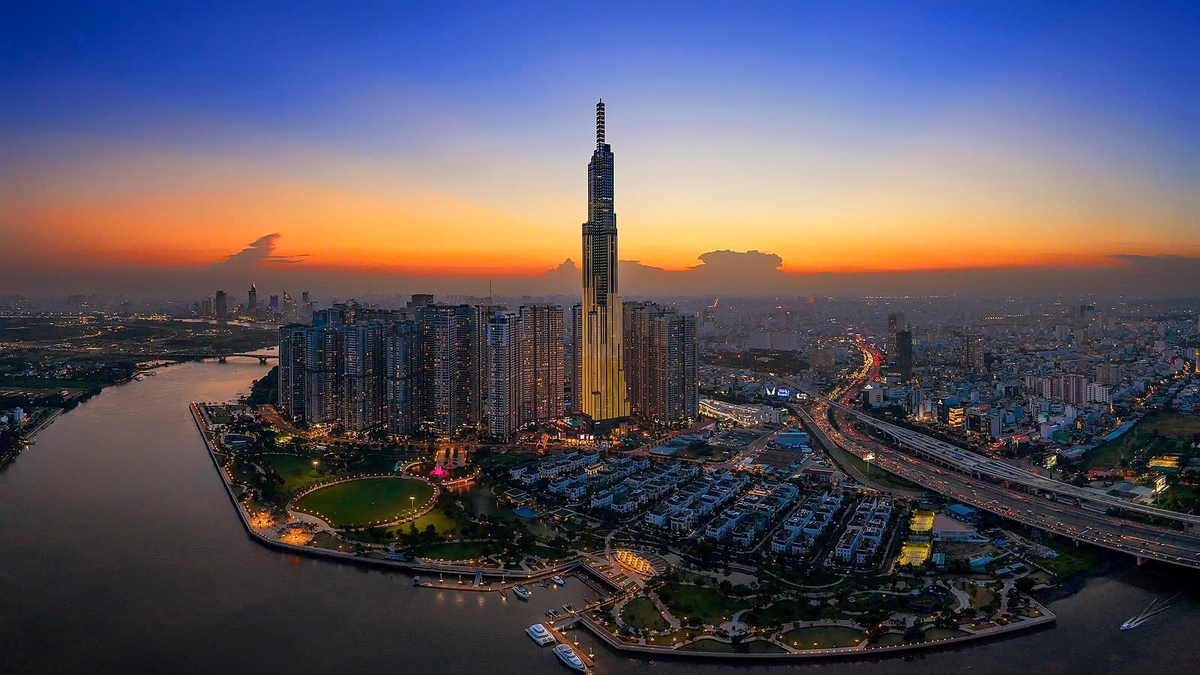


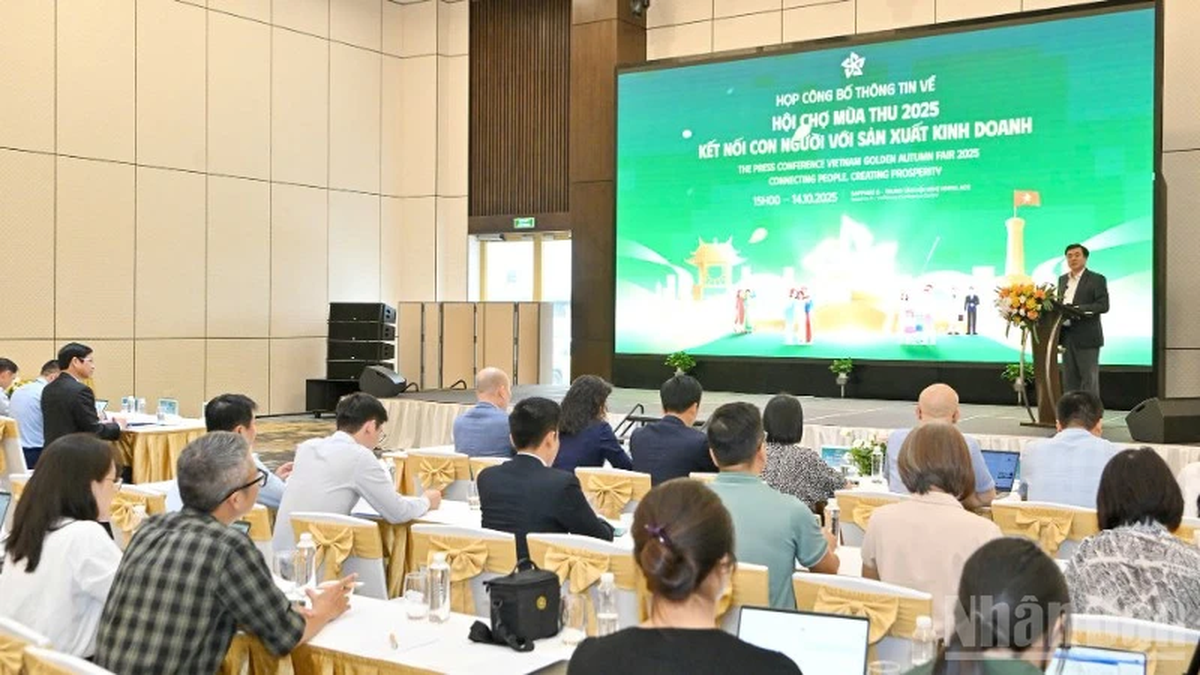
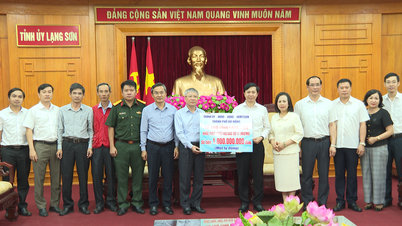



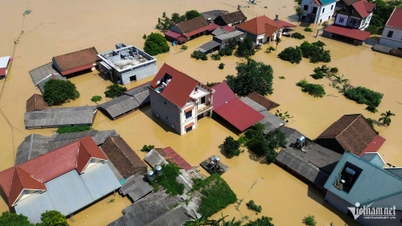





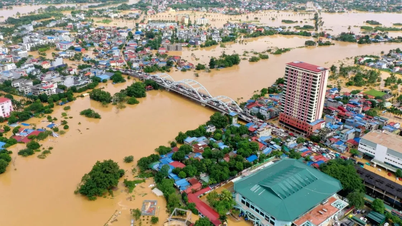



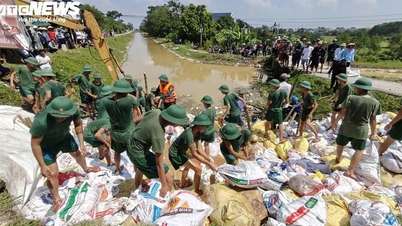


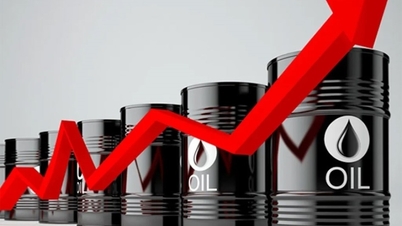
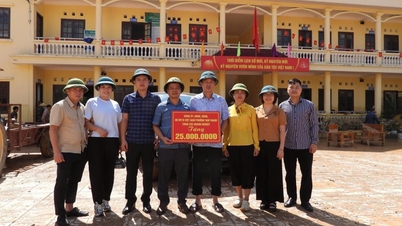





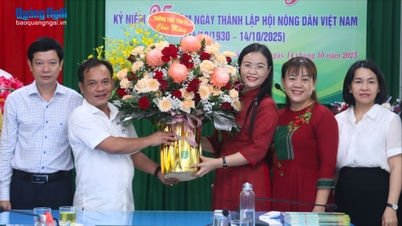

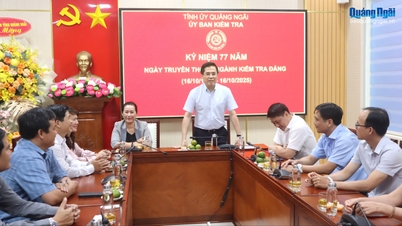
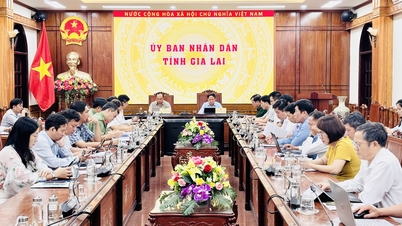
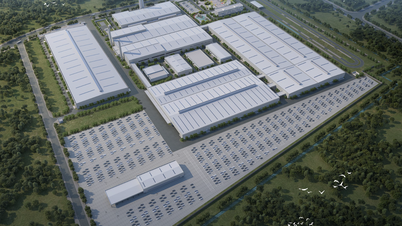






















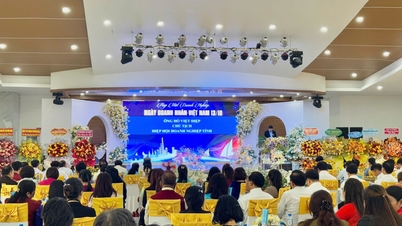
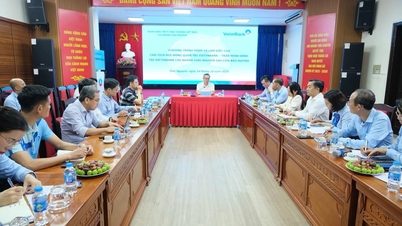









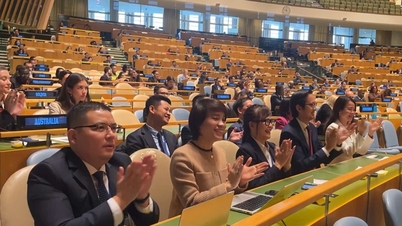


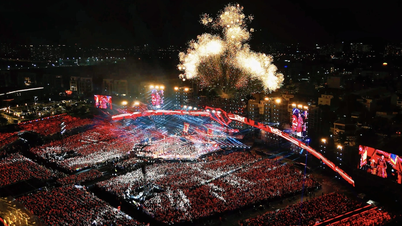

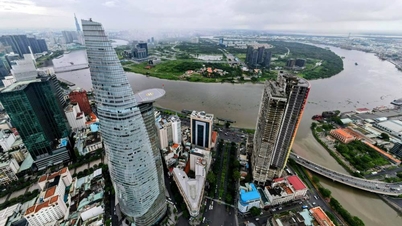
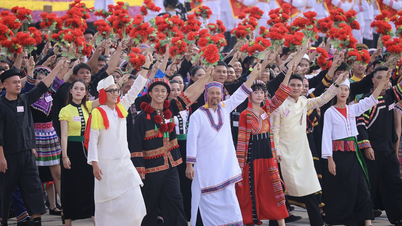
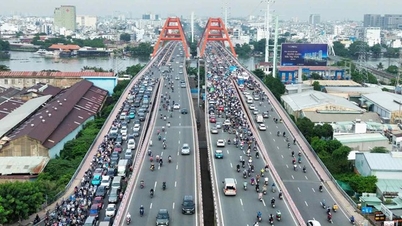
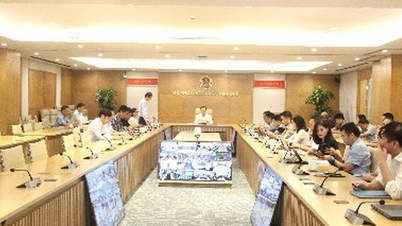

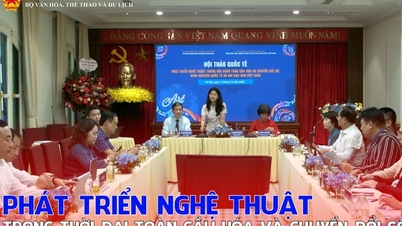

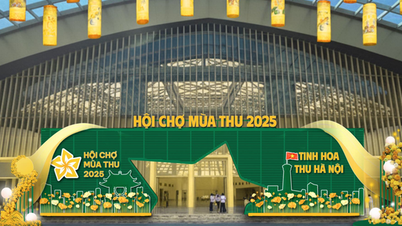
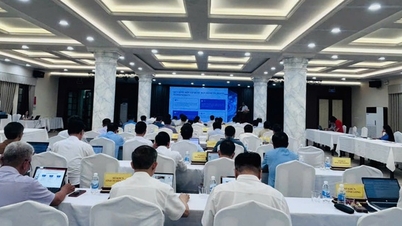


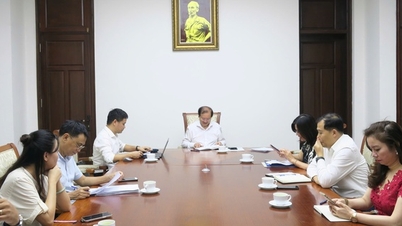
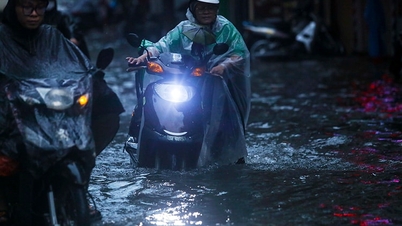

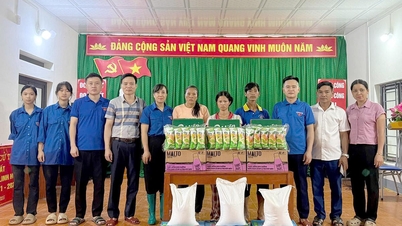

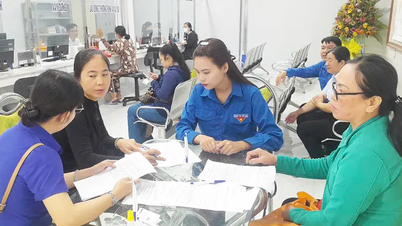



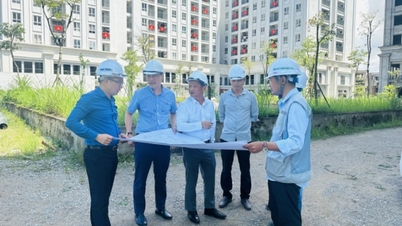














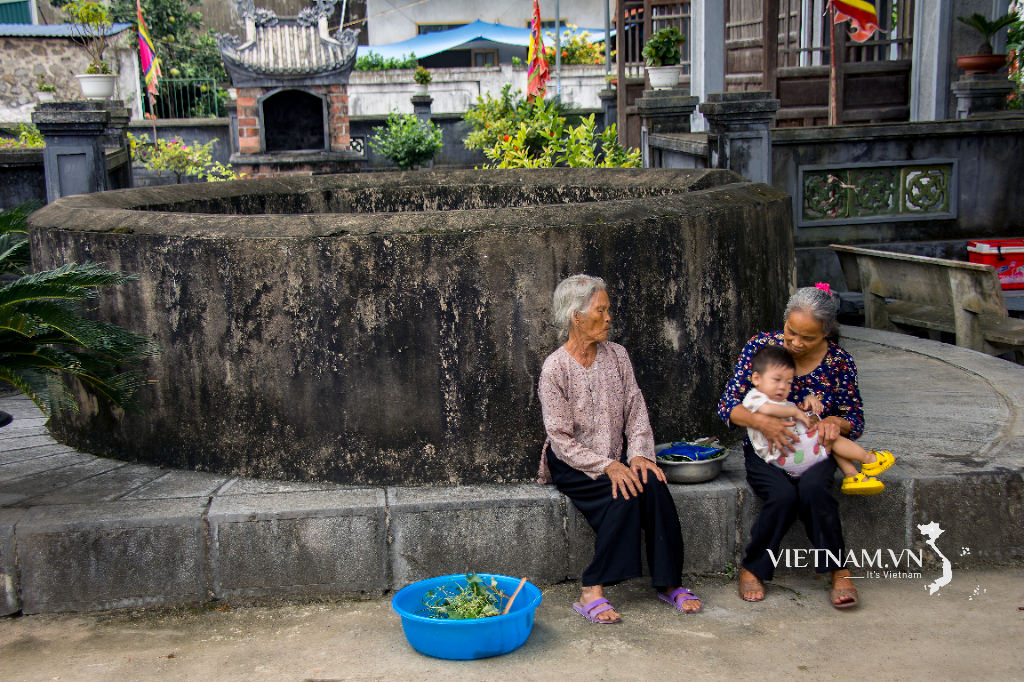

Comment (0)